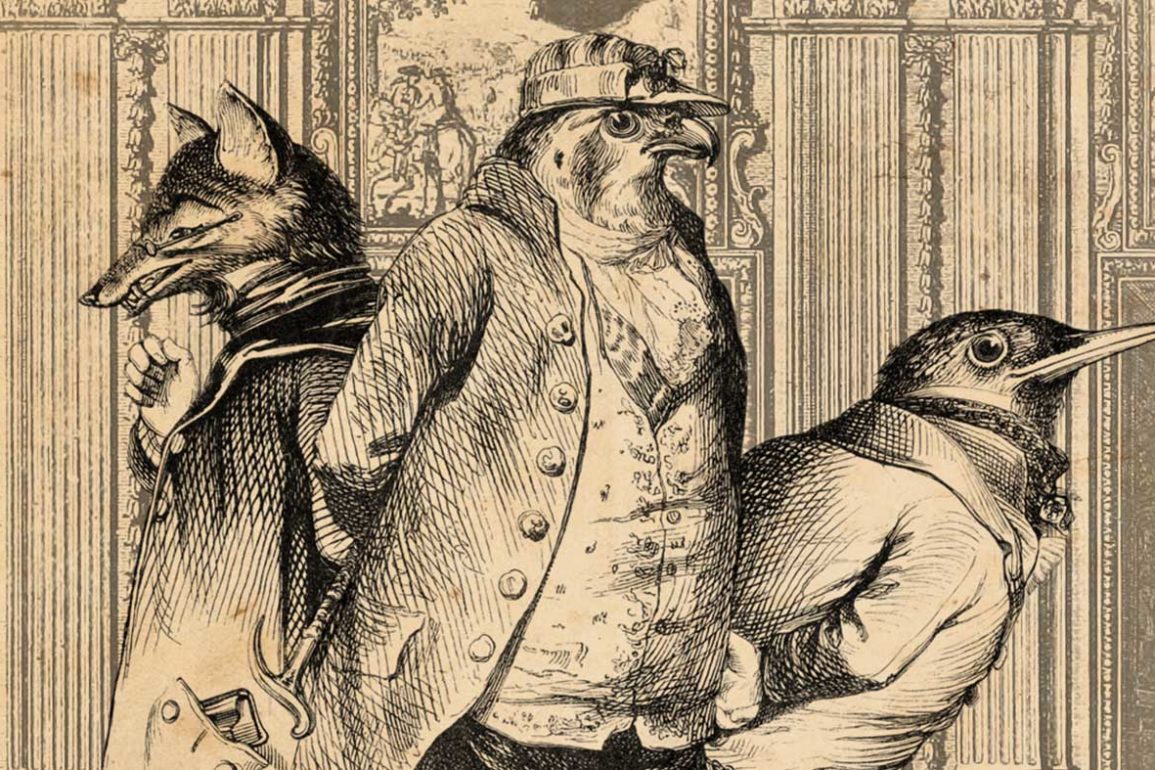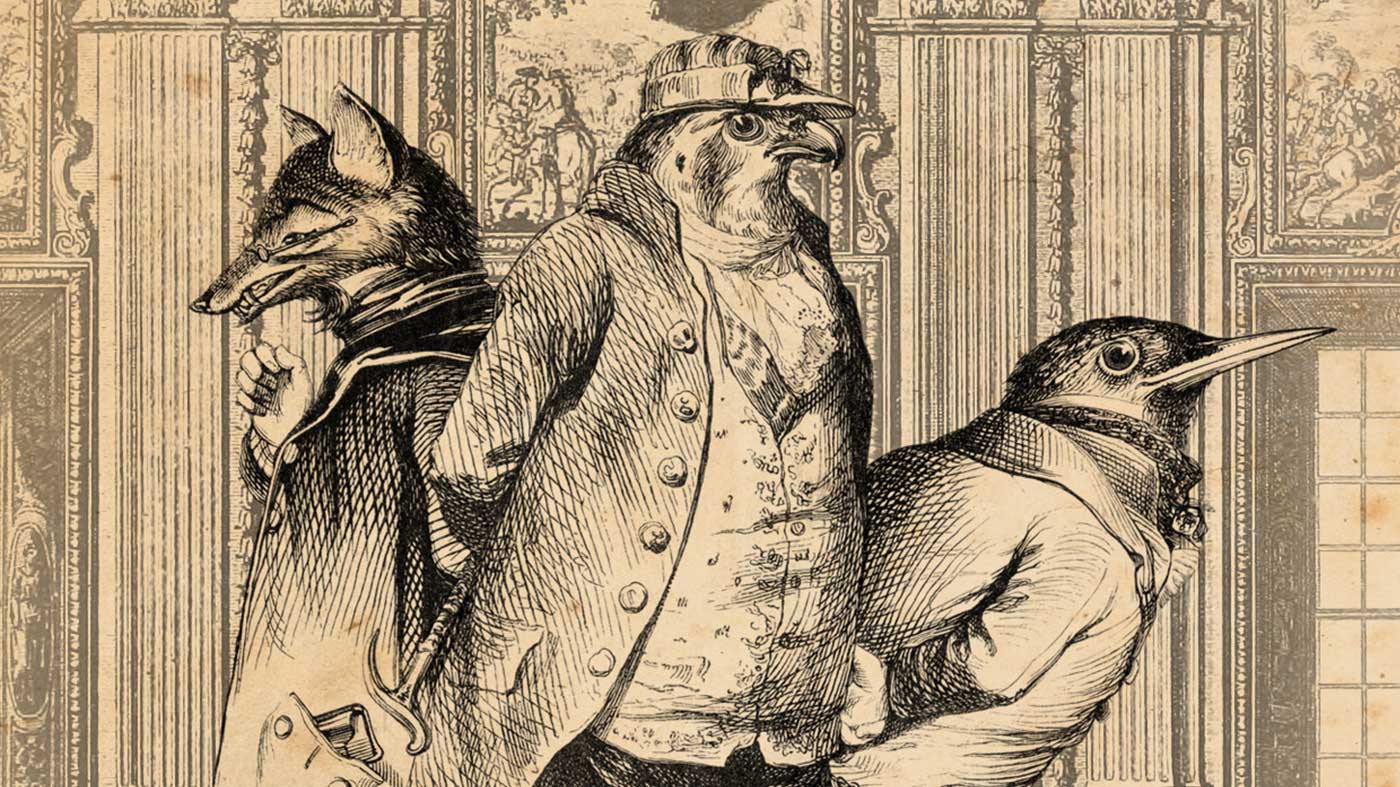At first glance, I was quick to assume that Aviary Attorney was a gimmick. A brash attempt to cash in on the Ace Attorney games, with a zany twist to stand out. But I was still intrigued. As it is, the Ace Attorney series has been one of my favourites for so long. Yet, when it comes to games that capture that same drama and excitement of the courtroom, it remains peerless. Somewhat surprisingly, Aviary Attorney is one of the better Ace Attorney clones available. While it never quite reaches the heights of its predecessor, it does do a few things better.
In case it isn’t apparent now, Aviary Attorney follows the adventures of JayJay Falcon and his trusty assistant Sparrowson amid a revolution in France during the 1800s. The core storyline is endearing enough, but you’ll take on cases for various clients and defend them from unjust prosecution across multiple acts. Bolstering the short stories is the characters themselves, who are equal parts goofy and charming – especially JayJay and Sparrowson. I’ve not played a game for a while that’s made me chuckle to myself – whether its political commentary related to the bourgeois or just self-aware jokes referencing the absurdist nature of the game – Aviary Attorney has a great sense of humour.
The general structure of the game is like Ace Attorney. You’ll begin each case with a brief from your client before venturing out into Paris to collect evidence to defend them in court. You collect evidence from interviewing suspects and witnesses, as well as from exploring locations when nobody is around. The twist with Aviary Attorney is that you can only do so much in a day, so it’s crucial to maximise your productivity whenever you visit a new location to scout.
One thing Aviary Attorney does very differently from Ace Attorney is that it is a slightly less linear experience. You’re given free rein to go wherever you want and collect whatever evidence you want – but moving between locations uses time, bringing you closer to the trial date. Where Ace Attorney literally waited for you to do everything it wanted you to do before moving the story on, Aviary Attorney is happy to move you onto the trial, prepared or not.
When you’re in a trial, you’ll listen to witnesses and present evidence that might contradict what they’re saying to expose the truth of the matter. It’s a simple system, perhaps even more straightforward (and slightly more linear) than Ace Attorney. But it does mean the game feels better paced. Where Aviary Attorney diverges from Ace Attorney is that failure is consequential and meaningful. If you mess up in court or didn’t investigate thoroughly enough before entering the court, your client may be handed a wrongful verdict.
This was incredibly interesting to me because games like Ace Attorney give you game over screens and force you to repeat yourself ad nauseum until you get the outcome it wants you to get. Aviary Attorney doesn’t care. It wants you to make mistakes, learn from them, and then lament about the client who, due to your incompetence, was wrongfully executed. Cases are short, which gives you less time to invest yourself in what’s going on, but I was still surprised to find myself so affected by the consequences of my mediocre investigating.
The cases themselves are rather short and never quite hit the mind-blowing, dramatic climaxes that the Ace Attorney games do. Despite this, I never felt like the cases dragged out or overstayed their welcome. It’s also worth mentioning that the game doesn’t fall victim to any of the weird logic issues you’d often find in translated games like Ace Attorney. Evidence you present makes sense, given the context of the situations, and it rarely feels confusing or unfair.
From beginning to end, you can expect Aviary Attorney to last anywhere between five to six hours on your first run. Depending on how events play out, you’ll probably want to replay the game at least once to see how you can change things. Perhaps intentional, the game’s brief length dovetails (sorry) beautifully with this notion. Hence, a second run isn’t out of the question for most players. Too many times, games insist that their replay value stems from a second run, but rarely are they designed in a way to make you want to do so.
If you think the characters of Aviary Attorney look familiar, it’s because they’re lifted straight from famous French artist J.J. Grandville’s public domain works. The result is a bunch of character portraits that will bounce around on screen but rarely do you see any animation beyond that to help sell the drama of the court. Despite this, the use of the caricatures blended with the beautifully drawn locales makes it hard to deny Aviary Attorney isn’t a uniquely charming looking game.
In a similar move, Aviary Attorney borrows the works of Charles-Camille Saint-Saëns, a French composer, to help paint the picture of 1800s France. While it might seem like a cop-out to not feature any original music, what is here does a phenomenal job at setting the scene, even if it’s a little familiar at times. Unfortunately, there’s zero voice work, but this is thankfully remedied by strong and well-characterised writing for the game’s zany cast.









